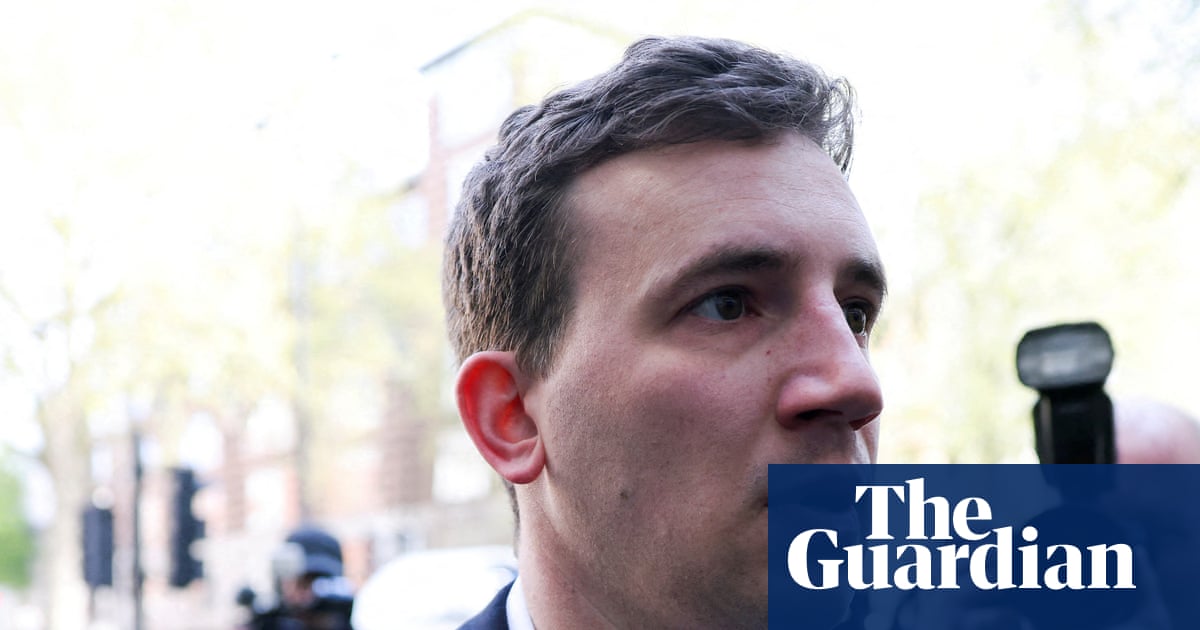A nurse found guilty 17 years ago of murdering four elderly patients has been unsuccessful in an attempt to appeal against his convictions.
Colin Campbell, who has changed his name from Norris, was jailed for a minimum of 30 years in 2008 for the murder of four women and attempting to kill a fifth by injecting them with insulin.
They were all inpatients on orthopaedic wards in Leeds, where he worked in 2002.
Doris Ludlam, 80, Bridget Bourke, 88, Irene Crookes, 79, and 86-year-old Ethel Hall died from hypoglycaemia, where blood sugar drops dangerously low.
In a 14-day hearing earlier this year, Campbell’s lawyers argued that new knowledge about naturally occurring hypoglycaemia meant the court of appeal should find that the convictions were unsafe.
In a ruling on Thursday, judges dismissed his appeal.
In their judgment, Lady Justice Macur, Mr Justice Picken and Sir Stephen Irwin said: “We have no doubt about the safety of any of the five convictions.”
The Criminal Cases Review Commission (CCRC), which referred the convictions to the court of appeal in London four years ago, had described the case against Campbell as “wholly circumstantial”.
During his original trial he was alleged to have been present when or shortly before each of the patients suffered hypoglycaemia. The rarity of the cases happening within a short space of time led prosecutors to argue that the nurse must have been responsible.
Prosecutors told the court that Campbell, who is originally from Glasgow, had also previously displayed a dislike and hostility towards elderly patients and predicted the death of one of the women, Ethel Hall, telling colleagues: “She might go off tonight at about 05:15.”
Experts for the defence, while suggesting that natural causes could have been behind the hypoglycaemia suffered by Campbell’s other alleged victims, agreed that Hall had been murdered.
Ward records of pharmaceutical stores indicated that two vials of Actrapid insulin were in the fridge on Ward 36 “on the evening of 18 November 2002, which were missing at 6am on 20 November 2002.”
The records could not explain their use and the inference was drawn that someone on the night shift had used the insulin to inject Hall.
In its decision to refer the case, the CCRC wrote: “There was very little evidence specifically inculpating [Campbell] in the murder of Mrs Hall, except insofar as it could be argued that, taken together, the cluster of cases pointed towards his involvement.”
Michael Mansfield KC, acting for Campbell, further told an appeal hearing that there had been four other cases of “sudden and profound” hypoglycaemia at the Leeds teaching hospitals after Campbell stopped working.
In its ruling, the court of appeal judges said these cases did not help Campbell’s appeals as there was a different degree of severity to the hypoglycaemia in the cases of the murdered women.
In their judgment, they said: “On our own analysis, the ‘extra’ cases serve to underline rather than undermine this aspect of the phenomena that are said to be distinctive in those cases of administration of exogenous insulin.”
Some campaigners for the nurse Lucy Letby, who is serving a life sentence for the murder of seven babies in her nursing care, had sought to link her case with Campbell’s, arguing that in both the prosecution had relied on anecdote.
Letby’s conviction is being considered by the CCRC after two failed attempts to appeal. Her lawyers and a range of experts argue that poor medical care and natural causes rather than deliberate harm were behind the babies dying at the Countess of Chester hospital’s neonatal unit.
In its ruling on Campbell, the court of appeal sought to draw some distance between the two cases.
They said: “Some observers have made clear in their applications to follow the proceedings by [remote link] that they seek to draw parallels between this case and other similar cases that may be ongoing.
“We make clear that we have each contributed to writing this judgment mindful of the necessity to explain the decision we reach, which has been dependent upon our view of an intricate debate between eminent scientists, by identifying the relevant issues and addressing them in terms of an appeal against conviction in the circumstances of this case.”
Mark McDonald, the barrister representing Letby, said: “The court of appeal rightly start their judgment with a warning not to draw any parallels with the Norris appeal and any others cases.
“This appeal was decided on its on specific facts and is profoundly different from Lucy Letby.
“Lucy now has 26 internationally renowned experts that all say no crime was committed and she has been wrongfully convicted. This, combined with fresh evidence that the jury did not hear, totally undermines the safety of her convictions.”
Campbell also unsuccessfully appealed against his conviction in 2009.

 2 months ago
54
2 months ago
54

















































